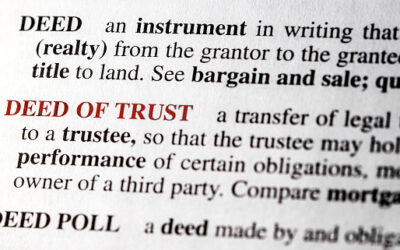Los Angeles Partition Attorneys

What is a Partition Action?
A partition action is a lawsuit that comes about when two or more owners of real property cannot agree on whether or how to sell the property. For example, a partition action can be the result of one owner wanting to sell while the other owner does not.
The partition action itself is a lawsuit where the plaintiff seeks the court’s assistance in forcing a sale or division of the property. There are very few defenses to a partition action. At Schorr Law, our real estate attorneys have done hundreds of these case and we know how to resolve these disputes or litigate them to maximize the outcome as needed.
What Does it Mean to Partition Real Property?
Partition is either a forced sale or a splitting of real property. A partition occurs when a co-tenant (a co-owner of real property) no longer wants to co-own real property with his/her/its co-owner and there is a disagreement as to what should be done with the property.
In California, there is a set of statutory procedures in the Civil Code that dictate how a partition action will proceed. Indeed, there are procedures for partition by sale (a forced sale), partition in kind (dividing the property), partition by appraisal (a buy-out by one owner of the other owner), as well as the Uniform Partition of Heirs Property Act for inherited homes—often crucial for siblings or extended-family owners.
California Code of Civil Procedure §872.140 also lets the court allocate “offsets” for mortgage payments, taxes, repairs, and even fair-market rent credits before any net proceeds are divided, so accurate accounting can save you thousands. At Schorr Law, our Los Angeles real estate attorneys are constantly litigating partition matters. We have even successfully obtained an adverse possession judgment against a co-tenant in the context of a partition matter. We evaluate all angles for your case. And, we are at the forefront of California law with some of our cases even help further define California law.
Because the judge’s decision often comes down to numbers, we provide each client with a clear “partition math” worksheet that projects potential offsets, equity splits, and sale timelines—typically six to nine months in L.A. County once the lawsuit is filed. In the end, partition is usually just a giant math problem.


Types of Partition Actions
There are many types of partition actions:
(1) Partition by Sale (CCP §872.820)—this is where the plaintiff seeks to have the court order the property sold as a whole. This is the most common form of partition. Courts prefer sale when a clean division will yield the highest net dollar value for every co-owner.
(2) A second type of partition action is partition in kind (physical division)—this type of action is where the plaintiff asks the court to divide the property. Partition in kind is very uncommon because most properties (other than rural or undeveloped large parcels of land) do not lend themselves to division. If the parties are likely to recover more money through a partition by sale as opposed to a partition in kind (by division), then the court will likely order a full sale. A surveyor’s map and expert testimony are usually required before the judge approves a split.
(3) The third type of partition is a partition by appraisal (CCP §873.910). A partition by appraisal involves a situation where one party is going to buy the other party’s interest in the real property. The parties then agree to follow a statutory appraisal scheme to determine the fair buy-out price. We often recommend this route for single-family homes with sentimental value because it avoids brokerage fees and shortens the overall timeline to roughly 4–6 months.
When is it Best to File for a Partition Action?
The best time to file a partition action is when the property has equity. If there is no equity in the property, there may not be good reason to file a partition action. A quick rule of thumb is that once combined mortgage balances fall below 80 % of the property’s fair-market value, a sale-by-court order will usually leave each co-owner with positive cash after offsets.
That said, we always recommend that the parties try to agree on a sale and a method of sale before filing a partition action. Our “pre-partition road-map” begins with (1) a written demand to sell, (2) a 15-day negotiation window, and (3) a neutral broker proposal—steps that often resolve the dispute without litigation and preserve relationships.
If the parties cannot agree, then the party seeking a sale should immediately bring an action. Filing early is especially important if one owner is paying the mortgage or taxes alone; offsets continue to accrue and the paying owner can seek reimbursement with interest under CCP §872.140.
In our experience, even after a party commences a partition action, most of the time the case resolves with a negotiated sale upon negotiated terms as opposed to through an involuntary court order. On average, Los Angeles County partitions that reach settlement close in 4–6 months, while fully litigated cases trend closer to 8–10 months. Because we have done so many partition actions, we have seen most situations before and have a framework for who to resolve all types of partition matters.

Partition Dispute Attorneys in Los Angeles, CA
At Schorr Law, we do far more than file paperwork—we build negotiation leverage through meticulous accounting of mortgage, tax, repair and rent-credit offsets so that the final judgment truly reflects each co-owner’s equity. Because of this financial focus, many of our cases settle favorably before trial and our clients often recover a substantial share of their attorney’s fees from sale proceeds under California’s “common-benefit” rule (CCP §872.140).
Representative Matters
Each result was achieved through the same data-driven approach we bring to every new partition dispute—an approach that has helped dozens of heirs, ex-partners, investors and business co-owners protect their equity and exit unwanted co-tenancies across Southern California.
Partition by Sale — Historic Bank Building, Downtown Ventura: Partitioning by sale a historic bank building in downtown Ventura, California.
100 % Attorney-Fee Award, Los Angeles Superior Court: Obtaining an award of 100 % of our attorneys’ fees in a partition matter where the court found the other party had unnecessarily increased litigation costs by refusing to cooperate.
Sibling Inheritance Dispute – Summary Judgment (≈ 7 months): Successfully obtaining summary judgment in a partition matter amongst three siblings for property they jointly inherited.
Family Buy-Out – Partition by Appraisal: Resolving a partition case amongst family members which resulted in one family member buying out the other family member.
10 acres of 250 Acre Ranch – Forced Sale: Forcing a sale of real property in a partition matter where our client held 10 acres within a 250-acre parcel.
Partition + Ouster – Increased Equity Share: Successfully obtaining an increased percentage of interest in real property through a partition and ouster action involving siblings.
Prevailing-Party Fee Recovery > Pro-Rata Share: Obtaining a prevailing-party attorney-fee award in a partition matter where our client recovered more than its proportionate share of fees.
Defense Victory – Plaintiff Refused to Pay Costs: Winning a partition case at trial where our client was sued for partition and the plaintiff refused to pay his share of the property’s common expenses.
Adverse Possession Conversion – 100 % Title: Successfully converting a partition action into an adverse-possession claim, allowing our client to secure 100 % ownership of a multi-million-dollar property despite originally holding only a 50 % record interest.
California Partition Lawyers
Key issues we handle statewide include:
Frequently Asked Questions (California Partition Actions)
Q1. How long does a partition action take in California?
Most cases in Southern California resolve in roughly 6 – 9 months, although highly contested matters can run closer to a year.
Q2. How much does a partition lawsuit usually cost?
A “vanilla” action typically falls in the $10,000 – $30,000 range, with many mid-complexity cases clustering around $15,000 in legal and court costs.
Q3. Who ultimately pays the attorney’s fees?
California courts may order that reasonable fees be reimbursed from the sale proceeds—and can even surcharge a non-cooperative owner—so the net out-of-pocket expense to each party is often limited.
Q4. Can a partition action be stopped once it is filed?
It’s rare, but the court may dismiss or stay the case if the objecting owner proves fraud, duress, or another narrow equitable defense; otherwise, settlement or buy-out is the practical path forward.
Q5. What offsets can the court award before splitting sale proceeds?
Judges routinely credit one owner for mortgage payments, property taxes, insurance, necessary repairs, and even fair-market rent when the other owner has occupied the home without contributing.
Q6. What is a “partition by sale,” and why is it the most common remedy?
When a property cannot be divided physically—or division would reduce its total value—the court orders a public or private sale and divides the net proceeds, a process known as partition by sale.
OUR REACH
Areas We Serve Within California :
We routinely handle partition disputes in every major Southern California venue and beyond, giving our team first-hand insight into each court’s local procedures and timelines. Our attorneys track local partition-referee panels and recent sale-confirmation orders, giving you an evidence-backed estimate of both timeline and likely sale price before you file.
PRESS
Recent Blogs
AB 130 California HOA Fines: Protections & Limitations in 2025
AB 130: Key Changes to Homeowners...
Do Deeds of Trust Expire in California?
Do deeds of trust expire in California? Do...
Partition Actions in California: Resolving Co-Ownership Disputes
Why a Partition Action in California May Be...
CONTACT US
Schedule a Consultation
We are happy to provide free consults for all qualified matters. Landlord and tenant matters require a fee.



